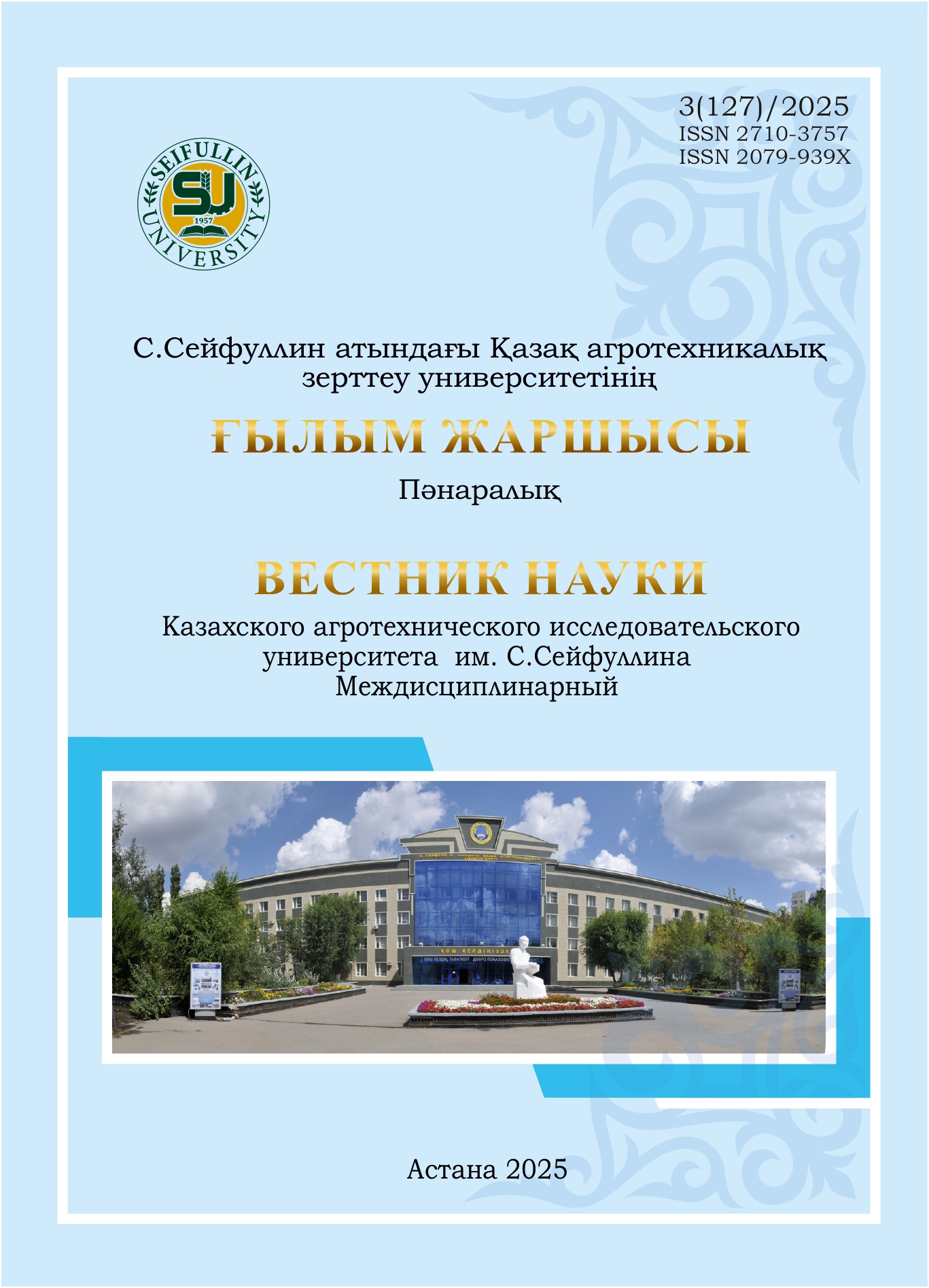The effect of salt-resistant bacteria on germination and development of flax seed seedlings
DOI:
https://doi.org/10.51452/kazatu.2025.3(127).1966Keywords:
microorganisms; salt tolerance; variety; strain; oil flax; soil.Abstract
Background and Aim. Approximately 11% of the world’s irrigated land consists of saline soils. The ecological rehabilitation of such lands highlights the importance of developing strategies to maintain stable crop yields while preserving soil fertility. In recent years, the use of beneficial microorganisms has become one of the most promising areas of research in this field. Beneficial microorganisms, such as fungi and bacteria that promote plant growth, can positively influence plant development under soil salinity conditions and contribute to improved soil fertility by optimizing processes such as nitrogen fixation, phytohormone production, nodule formation, nutrient uptake, and plant protection against pathogens. Creating favorable conditions for various groups of microorganisms to optimize processes that enhance soil fertility and improve its properties is one of the key prerequisites for successful cultivation of agricultural crops. The aim of this study is to assess the effect of microbial strains isolated from the saline soils of Northern Kazakhstan on the germination of cereal crop seeds.
Materials and Methods. The species identification of bacterial strains was carried out through PCR amplification and sequencing techniques of the 16S rRNA gene fragment. To assess the effect of saltresistant microorganisms on the growth of seeds of the oil flax variety "Kostanay Amber", the seeds were treated with culture filters with a titer of 10⁶ CFU/mL of microorganisms for 24 hours, while the control seeds were treated with distilled water. Seeds were kept at room temperature, and after seven days, germination was assessed by counting the number of emerged seedlings. The seeds were then kept at room temperature, and after seven days, germination was assessed by counting the number of emerged seedlings.
Results. In 2024, the ability of microorganisms isolated from the rhizosphere of salt-resistant plants in the North Kazakhstan region to stimulate the growth of oil flax seeds was studied in the laboratory of microbial biotechnology of ‘BIO-KATU’ LLP and the data obtained were presented. During the study, seven strains were selected.
Conclusion. The study found that the stimulant properties of the selected strains had a positive effect on the quality of oil flax seeds. Treatment of seeds with culture filtrates increased their germination and growth rate by 5-8.4%, and the root length increased by up to 50.2%. Strains of Paracoccus carotinifaciens 46P, Bacillus pumilus 54P, Paracoccus marcusii 58P, Bacillus megaterium 60P, Streptomyces corchorusii 79P, Microbacterium oxydans 91P, Microbacterium oxydans 97P were isolated, which had a positive impact on plant growth and development. These strains are planned to be used to create biological products and microbial consortia aimed at restoring saline soils.

